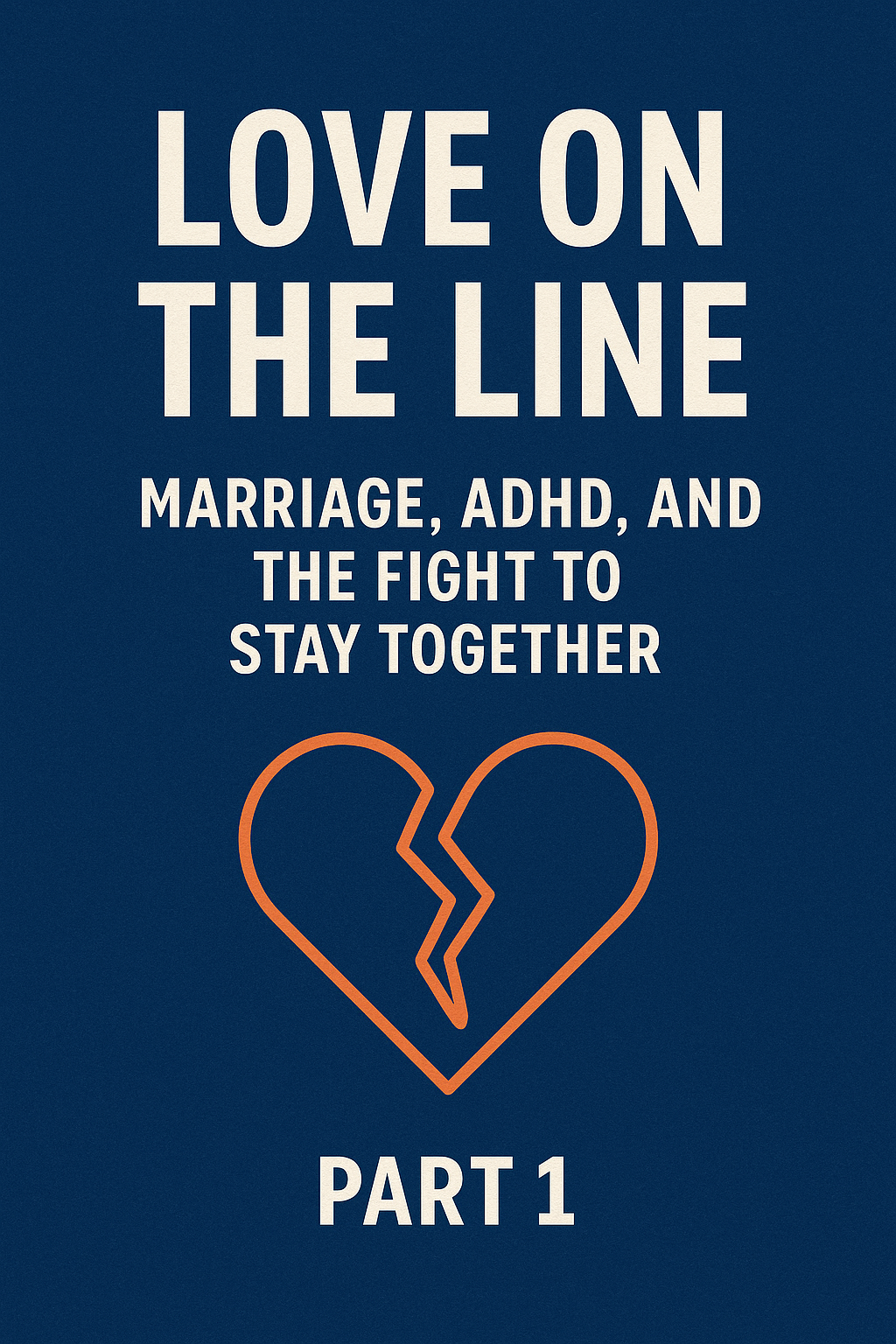Website designed with the B12 website builder. Create your own website today.
Start for free
It’s Not Laziness. It’s Not Forgetfulness. It’s ADHD—and It’s in Your Marriage
When you first fell in love, maybe you were drawn to their energy. Their spontaneity. Their passion. The way they made you laugh or launched into ideas with big dreams and boundless curiosity. It was electric. Irresistible.
Fast forward a few years—and what once felt thrilling now feels like chaos.
There’s a pile of unfinished projects in the garage. Forgotten errands. Missed appointments. Conversations that start and vanish mid-sentence. Emotional blowups over little things. Emotional distance when you’re desperate to connect.
You start to wonder:
If this sounds familiar, you’re not imagining it. You’re also not alone.
ADHD Doesn’t Just Live at Work or in the Classroom—It Moves Into the Relationship
ADHD (Attention Deficit Hyperactivity Disorder) isn’t just about fidgeting kids or poor grades. For adults, it’s a complex neurodevelopmental disorder that impacts executive function—the part of the brain responsible for planning, focusing, regulating emotions, and remembering details. All things marriage demands.
And when ADHD enters a partnership—especially undiagnosed—it often goes unnoticed until the cracks start to show.
Here’s how it often plays out:
Let’s Talk Numbers (and Why They Matter)
Research shows couples affected by ADHD are significantly more likely to separate or divorce. Some studies estimate the divorce rate is up to twice as high compared to neurotypical marriages.
But these numbers aren’t destiny. They’re a warning sign—and an opportunity.
Why This Disorder Can Wreck a Relationship Without Anyone Realizing Why
What makes ADHD so insidious in marriage is that it mimics relationship dysfunction:
The truth is, ADHD hijacks the relationship from the inside out:
Without an explanation, partners create their own narratives. And often, those narratives sound like:
Real Marriages. Real Stories. Real Hope.
Take Cheryl and Bill. They separated after years of feeling like they couldn’t hear or reach each other. It wasn’t until Bill was diagnosed with ADHD that they could finally put a name to the emotional landmines in their marriage. With therapy, education, and consistent support, they rebuilt—not from scratch, but from something deeper. Today, they’re happily remarried.
Or consider Jessica and Paul. She’s neurotypical. He has ADHD. After years of miscommunications and exhaustion, they discovered a shared calendar system, weekly check-ins, and separate therapy—plus one couples coach who specializes in neurodiverse marriages. They say they’re still in the “middle of the mess”—but now they’re facing it together.
You Didn’t Marry ADHD—But You Might Be Fighting It Without Knowing
One of the most common things I hear from couples is:
“We didn’t realize it was ADHD until we were nearly done.”
Too many couples suffer in silence. They assume their relationship is broken. That one partner is selfish, or lazy, or angry, or detached. They assume that the love they once felt wasn’t real—or isn’t enough.
But the problem often isn’t love. It’s misunderstanding. It’s untreated or unacknowledged ADHD throwing wrenches into a perfectly good marriage.
Why This Series Matters
This is not about blame. It’s about seeing clearly.
In this five-part series, we’re going to dig deep into:
Because the more we talk about this, the more couples we might save—from silent pain, avoidable resentment, and the heartbreak of leaving a love that still has a chance.
Up Next: Part 2 — “The Invisible Load: What It Feels Like to Love Someone with ADHD”
We’re going to explore the emotional burden of being the partner who has to carry the structure, the reminders, and the weight of keeping the relationship on track—when their needs too often go unmet. It’s raw, it’s real, and it might just be what saves someone’s marriage.